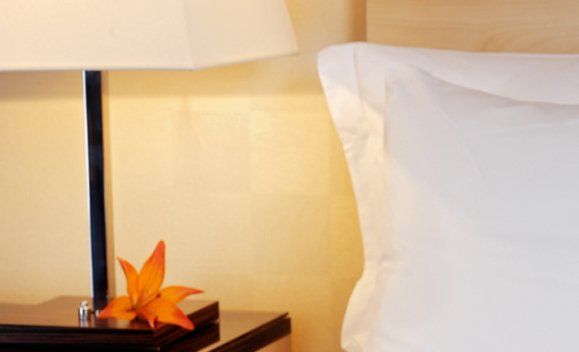Jeanne Latiolais, PsyD
Licensed Clinical Psychologist
Trouble Sleeping?
Is sleep really that important?
For anyone who has had trouble sleeping, it comes as no surprise that sleep is extremely important to our everyday functioning and well-being. Insomnia is estimated to cost $1.1 billion dollars in absenteeism and lack of work productivity. Frequent lack of sleep has been demonstrated to cause problems, not only in energy levels, memory, and work-related tasks, but also in immune function and interpersonal relationships. The dangers inherent in sleep loss can be staggering.

Recent evidence shows that, for example, an accumulated 23 hours of sleep loss results in decreased reaction time and driving impairment comparable to an illegal blood alcohol level. Other evidence points to an increased risk for depression or relapses of depression in individuals who experience sleep disturbances of greater than 2 weeks’ duration.
Sleep problems are very common in people who have symptoms of depression or anxiety. New research also shows that despite medical treatment of depression, sufferers are unlikely to spontaneously experience improvements in sleep, and thus sleep problems need to be targeted separately. Although treating sleep problems and establishing good sleep habits takes some concentrated time and effort, individuals who do so will reap the benefits of improved sleep with better concentration, improved immune function, and a boost in their ability to regulate their own moods. This is because during deep, REM-stage sleep, the body engages in the majority of its cell repair and immune system recovery and regulation.
Doing all the wrong things?
Oftentimes the very things we do to try to improve sleep result in a worsening of the problem. Here are some classic DON’Ts when it comes to getting a better night’s rest:
- Alcohol--Often insomniacs turn to a “nitecap” to help them fall asleep. While it is true that alcohol hastens the onset of sleep, what has been found is that alcohol prevents deep, restorative sleep. You may notice, after what seems to be a full night’s sleep following a few drinks, that you do not wake feeling rested, for example, or are more prone to illness during the next few days. Avoid alcohol if you want your amount of good quality sleep to improve.
- Exercise--Some try to “tire themselves out” before sleep by exercising. This is not a good strategy. Exercise is actually a great help in sleep regulation, but should be done no later than 4 hours before sleep onset. So, if you need to get to bed by 10 p.m., your workout should end by 6 p.m.
- Naps--Many people try to make up missed sleep by napping. While an occasional nap is not harmful, naps in general set one up for a disturbance in circadian rhythms, and trouble sleeping that night. Further, naps are unlikely to lead to good quality, deep sleep. Avoid napping and instead plan to get to bed earlier to get the hours you need.
- Sleeping In--Getting extra sleep on the weekend seems like a logical way to make up for sleep loss during the week. However, it is nearly impossible to actually “make up” for sleep loss in this way. Sleep consistency has been shown to be much more beneficial than “catch-up” periods. It is far preferable to maintain a regular sleep-wake cycle throughout the week than to constantly catch up and fall behind.
- Medications--Sleep medications, as well as many medications for depression, are helpful in the short-term only for sleep. Like alcohol, they may result in decrease in sleep quality and less deep sleep.
- Caffeine--Caffeine is effective for improving alertness in the short term; however, in the long term it can interfere with sleep. Individuals vary on their sensitivity to caffeine – some studies suggest any caffeine can interfere with sleep, other studies point to caffeine after 3pm as being most harmful.
- Trying to sleep--Many insomnia sufferers will lay awake trying to “will” themselves to sleep. This is a poor strategy because becoming anxious about sleeping is not conducive to sleeping, and because one begins to associate one’s own bedroom with not sleeping. A general rule of thumb if you are having sleep problems: Do not lie awake for more than 20 minutes. Get up, do a quiet activity such as reading, and only return to bed when you are very sleepy.
- Worries--Many find sleepless night hours are filled with thoughts of “to do” lists and worries about the future. But the middle of the night is a poor time to plan. These sleep-sabotaging habits can be greatly alleviated with cognitive therapy.
Licensed Clinical Psychologist
Corporate Square
351-B Dahlonega Street
Cumming GA 30040
DISCLAIMER: All information provided on this website by Dr. Jeanne Latiolais is made available to provide immediate access for the convenience of interested persons. While Dr. Latiolais believes the information to be reliable, human or mechanical error remains a possibility, as does delay in the posting or updating of information. Therefore, Dr. Jeanne Latiolais makes no guarantee as to the accuracy, completeness, timeliness, currency, or for any errors or omissions, or for the use or results obtained from the use of this information.